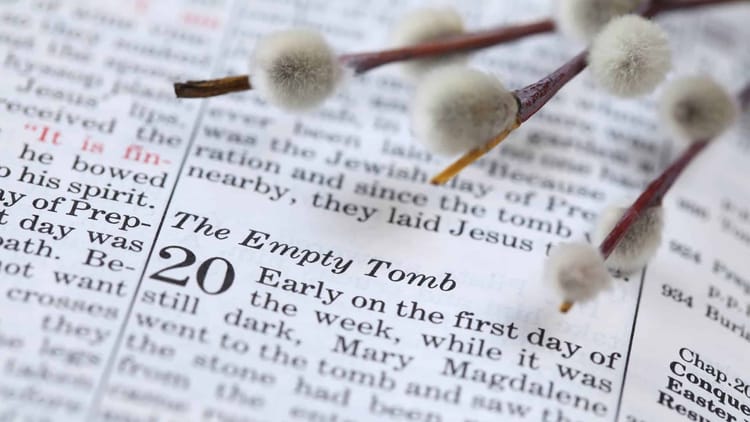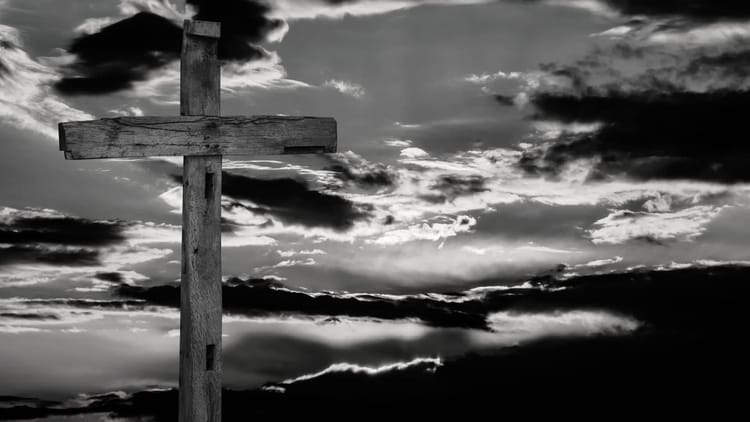A Different Kind of King (John 12:12-19)

One day, I was next door as a function was ending. I was wearing jeans and must have looked like I was part of the custodial staff. The guest performers stopped and asked me to turn off the lights or help find garbage bags. I did what they asked. It’s fun to go unrecognized at times, or to be mistaken for someone else.
We just watched a clip showing what happened on Palm Sunday as Jesus entered Jerusalem. For all of his life, Jesus had kept his cover. He went unrecognized, and he was okay with that. I don’t know, but it’s possible that Jesus might have enjoyed being unrecognized. The King of the universe, the Creator of all things, walked among us, unknown, undercover. He was probably pushed around as a kid, and might have smiled to himself knowing that he could summon hundreds of angels to defend him. He grew up, and learned a trade. He knew who he was, God knew who he was, but most everyone around him had no idea. He was just like everybody else.
Even when Jesus started his ministry, people didn’t know who he was. They thought he might have been another teacher or rabbi. His own family questioned him. He preached obscure messages on purpose so that his identity would be hidden. He preached sermons that turned people off. At one point, he turned to his followers and preached such a tough sermon that most of his followers got up and left. Occasionally, someone would realize that Jesus was more than a rabbi, more than a teacher, but Jesus would tell them to keep it to themselves. Throughout his entire ministry, Jesus was undercover. His identity as the Son of God, the Messiah, was hidden. It was intentional; Jesus liked it that way.
Recognized as the King
One day Jesus chose to blow his cover. A week before the Passover, the highest religious festival of the Jews, Jesus made his way to the Jerusalem area. The population of Jerusalem jumped from about 100,000 to an estimated one million people. Tensions ran high. Things were coming to a head, and Jesus decided it was time to blow his cover. Just a few miles from Jerusalem, at the height of the biggest religious festival of the year, Jesus stood beside a grave and told a dead man to come out. The crowds saw, and the crowds understood. For the first time in his life, people understood who Jesus was. They knew that he was the Messiah.
On the Sunday before Passover, Jesus entered into Jerusalem. Word got out that he was coming, and a huge crowd gathered to greet him. They weren’t just saying hello. They were holding a victory parade. They were greeting a King.
They grabbed palm leaves and waved them. Palm leaves had become a nationalistic symbol for Israel. It would be like an American displaying an image of an eagle. They welcomed Jesus. He was finally getting the recognition that he deserved as King.
They cried out, “Hosanna! Blessed is he who comes in the name of the Lord!” (John 12:13 NIV). They knew exactly what they were doing. They were quoting a passage from the Psalms that had originally been used to refer to pilgrims on their way to worship in Jerusalem. Over time, people understood it to refer to the Messiah, the promised one who would save Israel. Hosanna literally means, “Save us!” At one time, it’s what you would have said if you fell in the pool and didn’t know how to swim. Over time, it came to mean, “Praise!” It’s what you would have said if you fell in the pool and saw the lifeguard coming. The people understood for the first time who Jesus was. He was the Messiah. He was coming to save God’s people. He was the Promised One.
Think about this. For over thirty years, the Creator of the universe walked around unrecognized and unappreciated. His own family didn’t even get it. For the first time, the crowds are here and they finally understand, and they finally worship. Jesus has been recognized as the King.
We’re here for a lot of reasons today, but I’m sure that for some of us, the reason that we’re here is to worship the King. I often wish that we could just pass the microphone up and down the row and hear some of your stories. Some of you could talk with great passion about how the King has been recognized in your life. He may not have raised the dead in your experience, but he’s done everything but. For some of us here, he’s shown his power in our lives so powerfully that we can’t help but worship him. That’s not everyone’s experience, but it may be yours.
I loved the worship today. Jesus once said that if people didn’t praise him, the rocks would cry out and start praising him. It’s very powerful, and very appropriate, to be worshiping the King.
A Different Kind of King
Although this was a great occasion, if you look a little longer at what took place, you discover that there’s a whole other layer to what takes place. They worshiped the King, but this was a different type of King. Jesus is different from what you and I would have expected.
In the middle of describing what happened, the narrator stops and refers to an ancient prophesy that was fulfilled in this event. He quotes from Zechariah 9, and says:
Jesus found a young donkey and sat on it, fulfilling the prophecy that said:
“Don’t be afraid, people of Israel.
Look, your King is coming,
sitting on a donkey’s colt.”
His disciples didn’t realize at the time that this was a fulfillment of prophecy. But after Jesus entered into his glory, they remembered that these Scriptures had come true before their eyes. (John 12:14-16)
That one editorial comment points us to look beyond the event to see something deeper. There’s more here than meets the eye, more than the disciples understood at the time.
Zechariah 9 was about a King, but a different kind of king than you’d expect. Zechariah 9:9-10 says this:
Rejoice greatly, O people of Zion! Shout in triumph, O people of Jerusalem! Look, your king is coming to you. He is righteous and victorious, yet he is humble, riding on a donkey-even on a donkey’s colt. I will remove the battle chariots from Israel and the warhorses from Jerusalem, and I will destroy all the weapons used in battle. Your king will bring peace to the nations. His realm will stretch from sea to sea and from the Euphrates River to the ends of the earth.
Jesus is different from what you’d expect. He’s a King okay, but he’s a different kind of King.
“He is righteous and victorious, yet he is humble, riding on a donkey.” Humility is the last thing you would expect from a King. Humility is such a rare virtue, and it’s not a virtue you’d expect from God. Think about it. The only Being who has no reason to be humble is God. The rest of us should be humble, but God shouldn’t be. Surprisingly, it’s the virtue that Jesus shows as he arrives as the King. He’s not a proud King. He arrives in humility, as the humble King.
A donkey isn’t an animal that lends itself to pride. It’s far from a mounted horse. It would be like the Queen hopping into a Pinto for the royal procession. Jesus loves humility. He’s not out to be flashy, even in victory. He’s a king who arrives in humility.
This is so unlike me. I am impressed by size and credentials. It’s North American to be impressed with those who have made it big. I’m impressed by the biggest churches, the most charismatic people, by those who have accomplished the most. I’m not as impressed by the humble.
Some of you know that I was away taking some classes last month. The first day, the teacher went around and asked us all to introduce ourselves. As we went around the table, we were all doing the same thing: we were sizing each other up. We were rating how much we liked each person, and how much they impressed us. We were also doing one other thing: we were preparing our own little talk about ourselves, because we wanted to be impressive for the others.
In other words, our two major concerns were finding out who was impressive, and being impressive ourselves.
Jesus came and turned all of that upside down. Jesus is a humble King, and his Kingdom often shows up most powerfully in the most humble – in humble places, in weak people, in easily overlooked ministries. I believe that some of the most impressive ministries and most powerfully used people will never be the most famous or successful. He’s a humble King.
He comes in peace. Zechariah 9:10 says, “I will remove the battle chariots from Israel and the warhorses from Jerusalem, and I will destroy all the weapons used in battle. Your king will bring peace to the nations.” Jesus didn’t come riding on a warhorse. You don’t take a donkey to war. Picture hopping on a donkey and yelling, “Charge!” He came in peace. He’s the humble King; he’s also the peaceful King.
We generally like the idea of Jesus being peaceful. We wouldn’t have liked it if we had been one of the people waving the palm leaves. They were living under injustice, and they wanted things put right. They expected a confrontation, and peace wasn’t part of their plan. They wanted justice more than they wanted peace.
We generally like peace, but there are times that we want justice a whole lot more. There are times that we feel like praying God’s judgment, aren’t there? We’d love Jesus to come in, riding on his warhorse, ready to set things straight. And yet he doesn’t. He comes riding in peace.
One of the biggest questions that we ask is why God doesn’t fight the battles that we’d like him to fight. We face situations and people sometimes, and we just don’t understand why God allows certain people to get ahead, or why he lets some things happen. We’d prefer if God came and did battle with his enemies, and also with our enemies. At times like this, we don’t like the idea of a peaceful King.
I wonder how many people would have been waving their palms that day if they had understood that Jesus wasn’t coming to confront the Roman government and to fight for the freedom of the Jewish people. It isn’t that God is unconcerned with such things. It’s just that his timetable is different, and his rules of engagement are different as well. He comes in peace, even sometimes when we wish he would come at war.
He also comes as a victorious King. “His realm will stretch from sea to sea and from the Euphrates River to the ends of the earth” (Zechariah 9:10). But they way that he achieves victory is different. He arrived as a King prepared to die. The same day that he was received as King, he said these words:
The time has come for the Son of Man to enter into his glory. The truth is, a kernel of wheat must be planted in the soil. Unless it dies it will be alone-a single seed. But its death will produce many new kernels-a plentiful harvest of new lives. Those who love their life in this world will lose it. Those who despise their life in this world will keep it for eternal life. All those who want to be my disciples must come and follow me, because my servants must be where I am. And if they follow me, the Father will honor them. (John 12:23-26)
Jesus is a King coming to deliver the strangest sort of victory – a victory that takes place through death. Jesus arrives, not to conquer by force, but to give up his life and die. We know what comes after, but to get to Easter Sunday you have to go through Good Friday. You have to experience the death before you can share in the new life.
I sometimes wish that God was more concerned with my life. God isn’t concerned with my life as much as he is with my death. Jesus said that following him meant dying to self, of being crucified with Christ. Every day, I face the call to wake up, and as item one on my to-do list, choose to die to self. It’s only when we experience this death that we ever enjoy life on the other side.
Next Sunday, we celebrate two things. One, Easter Sunday. But we also celebrate a baptism. A baptism is a simulated drowning. It symbolizes putting ourselves to death so that we can be brought back out of the water no longer living, but having Jesus Christ live in me. That’s not the most appealing call, but it’s the call that we’ve been given. God calls us to come to him and experience life, but the road to that life first runs through death.
It’s easy to worship Jesus as the King. It’s a lot tougher to worship Jesus the King when we realize that he’s a different kind of King. It’s easy to make Jesus into our own image. The Toronto Star had an article yesterday called “What A Trend We Have in Jesus,” about all the ways that we have changed Jesus into something that appeals to us more. It’s easier to worship Jesus when he’s who we want him to be.
I loved the worship this morning. I long to come worship the King, the one who rose from the dead, as we’ll celebrate next week. I would have loved to have been there on the first Palm Sunday to welcome him into Jerusalem. The one we’re called to worship, though, isn’t just the King who rose from the dead. He’s also the King who calls us to humility, who comes in peace, and who invites us to enter into his death so that we can ultimately experience new life.
Prayer:
Father, it’s so easy to worship Jesus when he is victorious and loving. It’s much more difficult to worship him when we see him riding on a donkey, when he calls us to humility, to peace, and to death.
Yet he is the One we want to worship. We want to turn away from our pride and worship the only One who didn’t need to be humble, and yet chose humility anyway. You still show up in humility, in the most unlikely places, using the most unlikely people. We worship the humble king.
We turn away from our anger, our desire to go to battle, and we worship the King who comes in peace. Your ways are different from our ways. You don’t always go to battle on the issues that are important to us. Yet we trust you to deal with injustice in your time, in your way. We thank you that you come in peace.
We turn away from our desire to hold onto our lives, and worship the King who comes to die, and who invites us to die to ourselves as well. Although we cling so tightly to our lives, we believe Jesus when he says that those who find their lives will lose it, but those who lose their lives for his sake will find true life. We believe that, and we worship Jesus the humble, the peaceful, even the dying King. In his name we pray. Amen.





